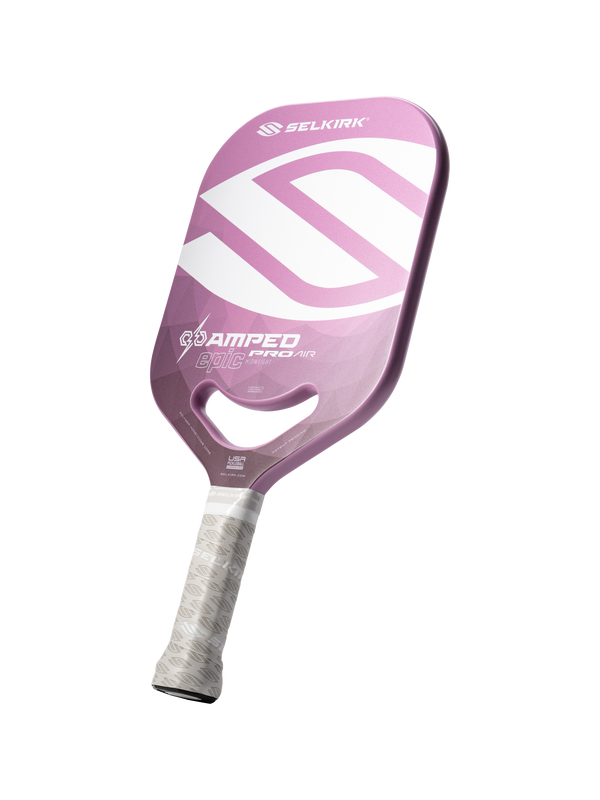
Does your spouse constantly forget the score of the game? Or give you unwanted training tips during your match? Does your sibling blame you for missed shots on the court?
Because pickleball is accessible to people of all ages, it can be a fantastic method of family bonding. However, when the going gets tough and you start losing points, getting along with your family can become a nightmare.
But as tensions get high, a few quick tips can help you avoid turning a spat into a full-on family feud.
Tip 1: Read the room
It is a crucial first step to understand what type of game you are playing. There is a vast difference in attitudes from competitive to social play. Competitive play can range from tournaments to intense matches against your rival friends, and require increased focus on the game.
On the other hand, social play comes from a more fun and laid-back approach to the game and is often taken less seriously. Yelling at your partner in this situation is frowned upon, and you can get away with not paying attention to the score … sometimes.
Use recreational play as an opportunity to understand what works for you and your partner. As these games don’t affect any potential rankings, it doesn’t matter whether you win or lose, so keep it light.
Tip 2: Check your attitude
If skill levels are equal or near equal, there’s nothing wrong with giving 100 percent effort and going for the win. However, if you are at a higher skill level than your opponents — especially if they’re family — there’s no need to humiliate them. It is best not to slam the ball into the chest of your opponent, spouse, or sibling.
Tip 3: Call the ball
One of the greatest missteps of any partnership is a lack of communication. Many partners will get into spats over who should’ve hit a ball or one partner taking more balls than they should.
To overcome this, call every single ball that comes over the net, even the ones that seem obvious. If one partner prefers to stay quiet, you can designate a caller. That person will dictate who should take the shot, but they need to remain vigilant in their calling.
Tip 4: Know-it-alls are not welcome
Nothing irks players more than having their partner tell them what they should have done after every point. There is a right place and time to offer your partner advice, and it’s not in the heat of the moment.
Of course, beginners may need some more guidance, but remember to ask if they want coaching before beginning a game. Players with experience under their belt may often find on-court advice to be redundant or flat-out annoying, especially when it comes from family.
As with any relationship, people have different strengths. Although you may have seen success slamming the ball, your partner may see more success with a well-placed dink.
Make sure you understand your partner’s play style and if it’s working well, let them do their thing. Communicating with your partner is essential to a successful game, but you must know the right time, place, and delivery method.
Try keeping your in-game comments to a minimum. Then, you and your partner can give each other feedback during a post-game wrapup. Make sure you set rules for how you can talk to each other — does your partner prefer uplifting conversation or some tough love?
Tip 5: Avoid the blame game at all costs
Nobody likes the blame game, especially your family. Often, once the blame game starts on the court, it carries into the rest of the day.
If you mutter a sarcastic “nice shot” under your breath, you’ll more likely than not hear a retort back from your partner the next time you slam a ball into the net.
You must avoid the “ping pong effect” of insults, where you and your partner trade insults after each poor shot. The easiest way to do this? Don’t start insulting at all.
This goes for body language too. Don’t roll your eyes, throw up your hands, or send a death glare to your partner. These all communicate your dissatisfaction and can be poison on the court.
It is imperative to keep a positive morale with your partner. Whether it’s your brother, spouse, or child, show them you have their back with uplifting and supportive comments. A simple “good effort” after a missed point can motivate and relax your partner.
And remember the old idiom: If you don’t have anything nice to say, don’t say anything at all.
Tip 6: Keep track of the score
This one seems like a no-brainer, but one of the biggest points of frustration between family members is a partner not remembering the score.
Keeping track of the score helps prove to your playing partner that you are focused on the game. While everybody forgets the score from time to time, some struggle significantly more than others. Constantly forgetting the score is not only an annoyance but can also cause confusion on the court.
A tip from the dark side
While pickleball is a friendly, all-inclusive game, a little gamesmanship never hurts. If you are a cutthroat competitor on the pickleball court, this tip may be for you.
If you find yourself in a competitive match against a couple, you may look to aim your shots for an area of the court known as “Divorce Alley.”
Divorce Alley is the gap between two opponents, specifically a married couple. Oftentimes, couples have a hard time covering the middle because they are hesitant to overstep lest they get accused of taking their partner’s ball.
Aiming your shots here can be a surefire way of winning an easy point.























